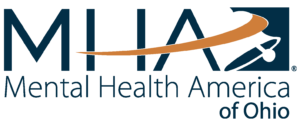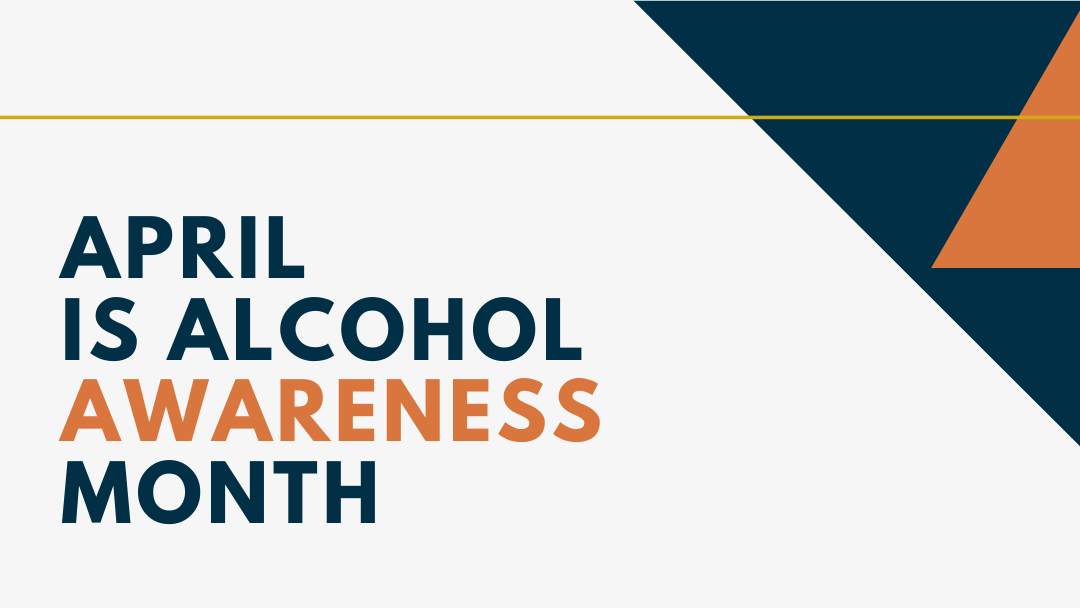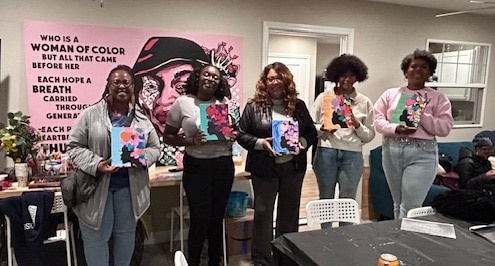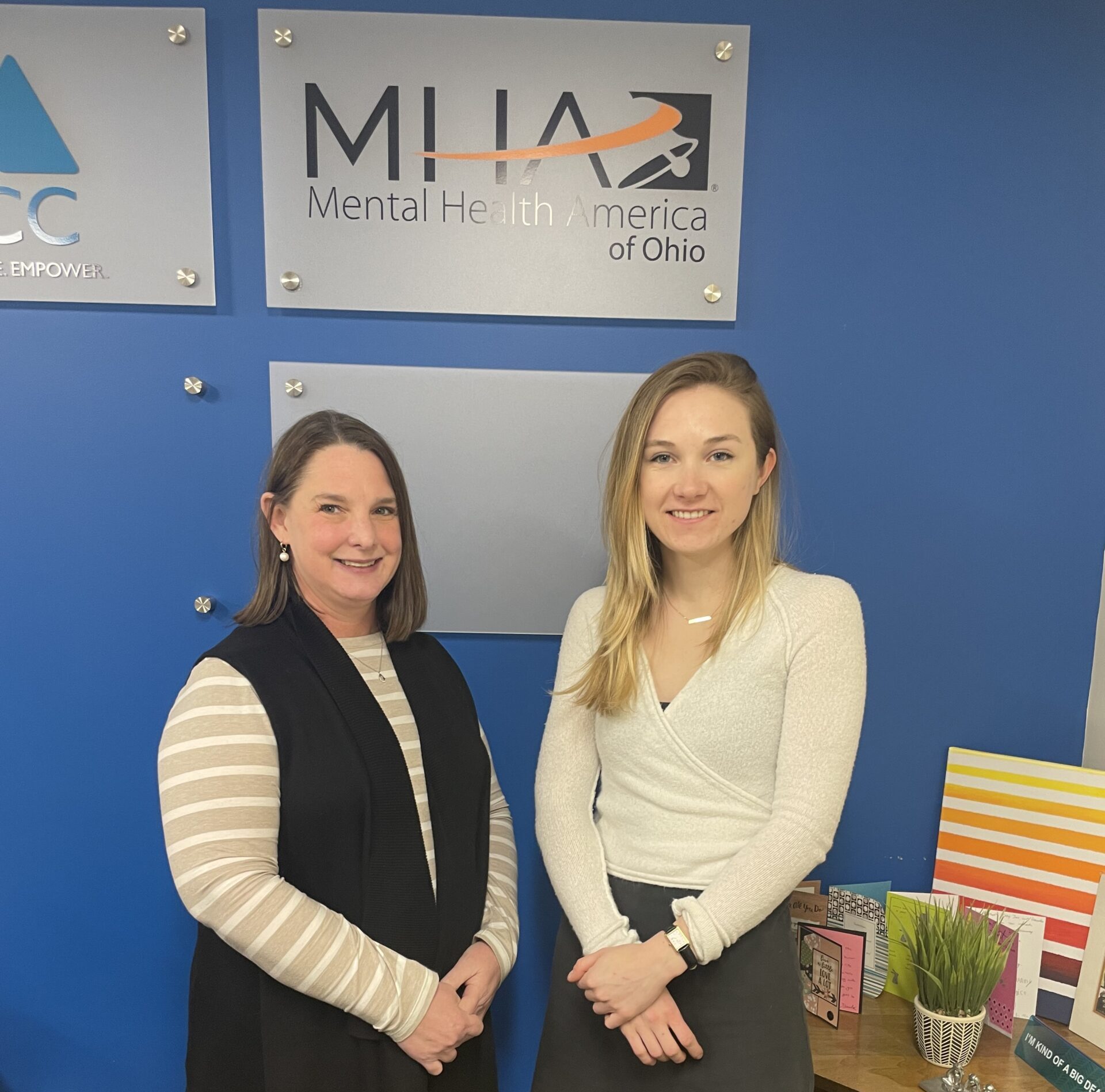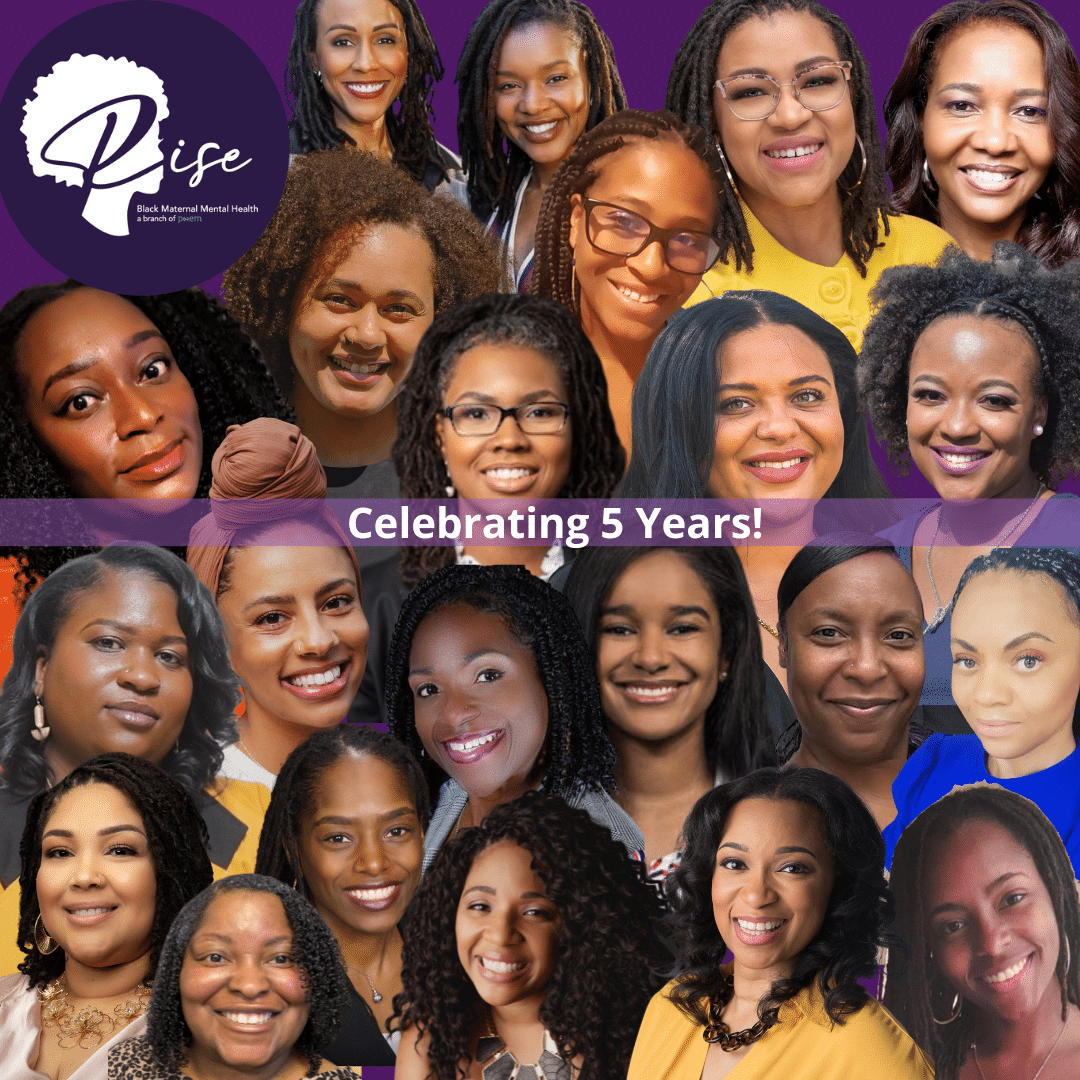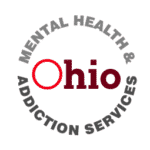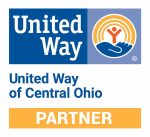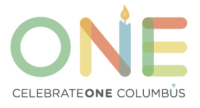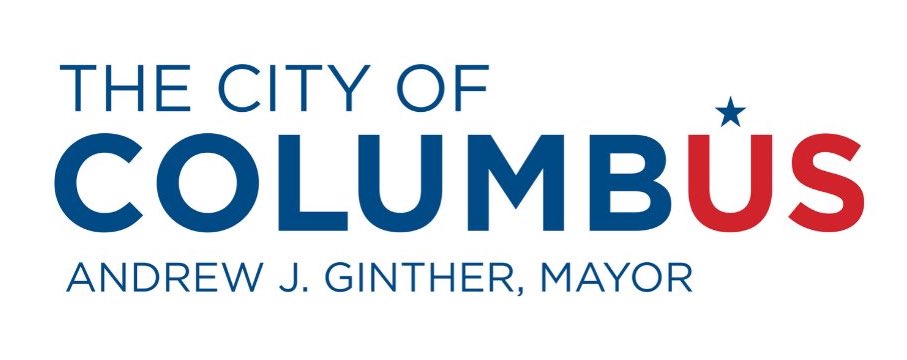April is National Alcohol Awareness month – and today, April 7, marks the annual Alcohol Screening Day. Alcohol and substance use disorders (SUDs) are a category of mental illness and sometimes can even co-occur with other mental illnesses like depression, anxiety, or bipolar disorder. According to the 2019 National Survey on Drug Use and Health, 9.5 million adults in the US reported having both an SUD and a co-occurring mental illness, but less than half of them received any kind of treatment.
MHAOhio’s Get Connected program supports those who might be experiencing mental illness by connecting them with providers and resources that can help them on their path to wellness. LeeAnn Mattes, Get Connected Program Director, explains that stigma around SUDs often prevents people from seeking help until they’ve reached a point of crisis.
“Many folks with mental health disorders begin using alcohol or other substances to self-medicate their symptoms of depression, anxiety, mania or psychosis,” LeeAnn said. “The stigma of seeking treatment for mental illness plays heavily into this phenomenon. Alcohol is also more accessible for many people than prescription medication can be. But self-medicating with alcohol or other substances more than likely will exacerbate symptoms of mental illness instead of helping that person feel better. The Get Connected program can help guide people to access services, regardless of insurance or income.”
LeeAnn often refers clients who are experiencing SUDs to Maryhaven, which has behavioral health and addiction treatment centers all across central Ohio. Jennifer Martinez, Director of Maryhaven Addiction Stabilization Center, has been advocating for increased awareness about SUDs in the hopes that more people who are struggling will seek help.
“SUDs are the only mental illness where people are treated punitively for not following a treatment plan or recommendation,” Jennifer said. “It all leads back to stigma and thinking that they’re making a choice to do this. But addiction is not a choice, it’s an illness, and we need to learn to treat those who are struggling with addiction with the same compassion and respect that we treat any illness.”
Jennifer explained that there are many common misconceptions about SUDs that prevent the general public from fully understanding them, making it difficult to allocate funding and resources for treatment. But there are a few things we know for certain, including:
- SUDs can be genetic. Some people have a genetic predisposition to developing a SUD, but may be unaware. This is why it is important for families to talk about SUDs openly and honestly.
- With some substances, like opiates, a person can become dependent in just a few days. This makes it very difficult to identify when recreational use has become something more serious.
- Anyone can develop an SUD for any substance, whether it’s classified as illegal or not. Addiction transcends age, race, religion, and many other socio-economic factors.
SUDs can be sneaky, and the first step toward recognizing whether someone may be developing one is to look at how it is impacting their everyday life.
“Some big red flags we often hear are when someone says that they’re calling off work or school because they’re hungover, or that they’ve reached a point where they have to have a drink halfway through the day or they will start getting withdrawal symptoms,” Jennifer said. “Those are really significant indicators that it has gone beyond recreational use, and it has moved to the point where they’re either physically or psychologically dependent on whatever the substance is.”
If you think you or someone you know may be experiencing symptoms of an SUD, Mental Health America National offers a free anonymous screening tool that can help you identify your symptoms and next steps for addressing them. For further assistance contact MHAOhio’s Get Connected program by calling (614) 242-4357 or emailing connect@mhaohio.org.
